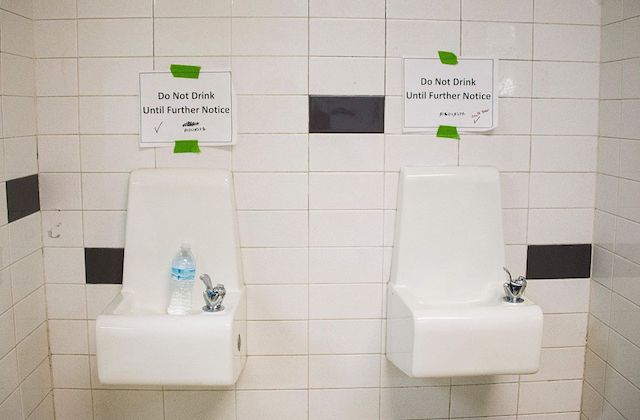The Safe Drinking Water Act (SDWA) was passed in 1974 to protect public drinking water across the United States. But a new report finds that enforcement of the act varies greatly—and that the race of a community’s population is the major determinant of whether there will be violations.
“Watered Down Justice” was released last week (September 24) and was written through a partnership between Natural Resources Defense Council (NRDC), Environmental Justice Health Alliance for Chemical Policy Reform and Coming Clean. It is an analysis of nationwide violations of SDWA from 2016 to 2019.
Per the report:
rnt
Our analysis revealed that race, ethnicity and language had the strongest relationship to slow and inadequate enforcement of the Safe Drinking Water Act. That means that water systems that serve the communities that are the most marginalized are more likely to be in violation of the law—and to stay in violation for longer periods of time.
Drinking water systems that have been in violation of the law for a number of years were 40 percent more likely to be in communities of color than in places where Whites make up the majority. These violations were divided into three overall categories: health based, monitoring and reporting, and public notification. Health-based violations can lead to a higher incidence of developing certain cancers, developmental delays and infertility.
The report included an extended analysis of Flint, Michigan, calling the majority-Black city’s deadly lead water crisis a “microcosm of the state of our drinking water system.” It also includes case studies of Newark, New Jersey, another predominantly-Black city currently in the midst of a lead water crisis, and Sandbranch, Texas, a historically Black town near Dallas that has never had public water lines or sewage service.
“As a scientist, I was surprised to find that race had the strongest relationship to the length of time people had to live with drinking water violations,” said Kristi Pullen Fedinick, director of science and data at NRDC, in a statement. “But as a Black woman, I was not surprised at all. It is a travesty that the nation’s drinking water law does not protect everyone equally. No one should have to wonder about the safety of their water every time they turn on their tap.”
In conclusion, the report states:
rnt
For communities already facing severe burdens due to racism, social conditions, and/or environmental and health hazards, the inability to turn on a tap and receive clean, safe water is particularly devastating—and unjust. Our findings are consistent with the long-standing pattern of disproportionate and cumulative hazards in communities of color and low income communities. It is therefore incumbent upon our policymakers, water utilities and other responsible parties to protect the most vulnerable populations and ensure their right to safe water.
Read the full report here.
